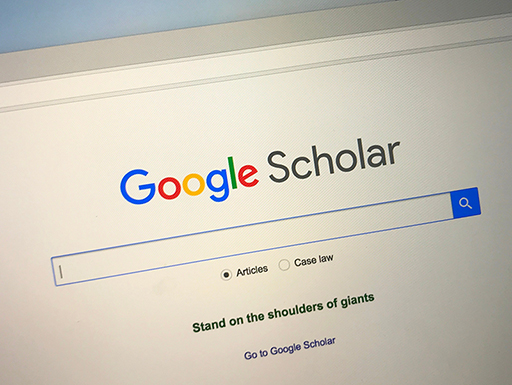1 Searching for secondary sources online
There are an increasing number of resources now freely available online that can be adapted for classroom practice. One of the principal difficulties of using these resources is that they can be time-consuming to search and can occasionally produce unsatisfactory results, which only adds to the problem of ‘information overload’ that frequently impedes teaching and makes it difficult to keep up with the most recent research in the discipline. The purpose of this session is to help you manage information, find quality academic content, and assess its value to you both for professional development and classroom teaching purposes.
Below, we give guidance on constructing searches, principally for secondary literature. No doubt you know some of this already, but there may be areas in which you could adopt a more targeted approach that will save you time in the longer term. The principal resources that will be discussed in this section are Google Scholar and JSTOR, though most of the skills and techniques can be applied to other collections such as publisher databases.
To begin with, where should you search? Most of us are naturally drawn towards using Google or an equivalent search engine when looking for historical content. Of course, the problem with that is that it can generate enormous numbers of ‘hits’ with little in the way of quality assurance, so the most useful sites for us as educators might be buried several pages into search results. Where possible, searching for academic literature ought instead to be more focused than typical internet searches. It should involve more precise search terms and employ different search tools and collections.
If you want to get a general overview of a field or find out about recent research, Google Scholar is generally a much better place to start for secondary literature. It is an academic subset of Google, which sometimes provides links to open access versions of academic papers. A note of caution: not all Google Scholar materials have been quality checked by academics before release, whereas most formal academic publishing guarantees quality by ‘peer review’. That said, if you carefully evaluate the content that you find this should be the most useful one-stop-shop for your everyday practice. We’ll discuss how to do this in this session.
For narrower and more focused searches, it can be worth looking at specialist academic publishers, as they sometimes make their published content available online. Usually these take the form of focused collections in a defined subject area, and most use peer review to ensure quality of content; they will consequently provide precise search results of reliable quality. Many will include open access materials: that is, scholarly research that is made free at point of use. There is an increasing move towards making research available open access, and it’s always a good idea to consult open access repositories at UK universities. If you have identified a particular historian, for example, finding their institutional repository will give you access to some of their publications.
It is also worth your while to investigate the library collections that might be available to you as a university alumnus. Increasingly, academic libraries are offering their former students access to some subscription collections, such as academic journal databases like JSTOR and EBSCO. Most library online catalogues also have the facility to search across multiple databases simultaneously to generate a results list. This may well give you access to materials that are not freely available by other means; plus, if you have an account with a university library, you can usually link it to your Google Scholar account, of which more shortly.
You will now take a look at different online search techniques.

